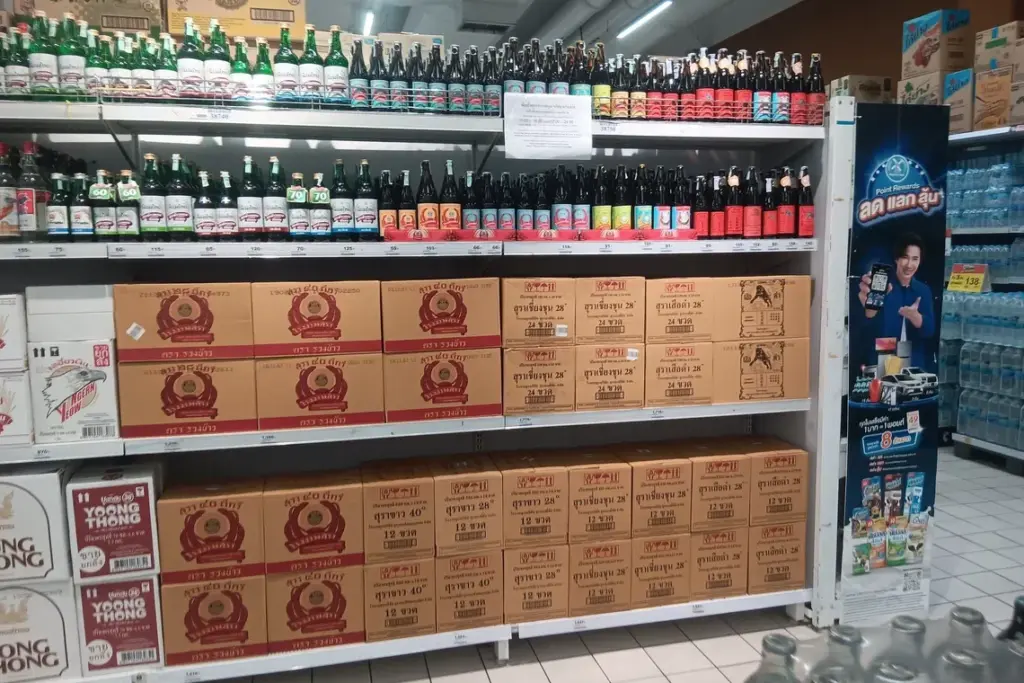
BANGKOK – A significant transformation has occurred in Thailand’s food and beverage industry following the enactment of a revised Alcohol Control Act on November 8. The updated legislation aims to modernize the original 2008 Act, adapting it to digital-era sales while balancing social control with economic growth. However, the law has ignited a strong public backlash due to its direct penalties on consumers drinking during restricted hours, causing confusion and anger across the hospitality sector.
The controversy centers on Section 32, which prohibits alcohol consumption at licensed premises or commercial venues during legally restricted hours. Violators face fines of up to 10,000 baht (approximately $400) under Section 37/1. Previously, the law primarily targeted vendors, prohibiting sales to minors or intoxicated individuals. The new penalties shift responsibility to consumers, marking a legal turning point and creating a stricter enforcement standard that directly regulates drinking behavior.
Impact on the Hospitality Industry
Under current regulations, alcohol consumption is prohibited from midnight to 11 a.m. and from 2 p.m. to 5 p.m. This means that even if a customer purchases drinks before midnight but continues drinking beyond it, they are in violation and subject to fines. Certain venues, such as licensed entertainment establishments, hotels, and international airport departure lounges, are exempt. However, smaller restaurants and cafes without an entertainment license must halt all alcohol consumption at the prescribed times, leading to a sharp revenue loss from late-night diners and drinkers.
The new law comes as the government pushes policies to revive tourism and extend closing hours in specific zoning areas. Industry representatives argue that Section 32 contradicts these goals. Mr. Sorathep Rojpotjanaruch, chairman of the Thai Restaurant Business Association, criticized the move, stating,
“It’s unclear what purpose this law serves. Those who signed it may not realize how much damage it will cause to the tourism and service economy.”
Uneven Impact and Business Frustration
Smaller food and beverage operators argue that the law creates legal inequality, favoring large entertainment venues. The midday ban adds operational complexity, forcing restaurants to introduce “last order” policies, while the late-night ban requires tables to be cleared before midnight. Dr. Nipon Chinanonwait, who served on a committee under the Ministry of Public Health, noted that the ban is not new but merely codifies existing restrictions. However, critics highlight that the 10,000 baht consumer fine represents a new enforcement level, as authorities previously targeted sellers rather than drinkers.
The law’s enforcement has hit businesses hard during Thailand’s high tourism season. The private sector warns that the rule could undermine tourism competitiveness, particularly in nightlife areas and among European visitors who drink from afternoon into late night. Mr. Prapawee Hemathas, secretary-general of the Craft Beer Trade Association, said operators are “in limbo” – they want to comply but lack clear guidelines while waiting for secondary legislation.
Australia has reportedly issued a travel advisory warning its citizens about Thailand’s 10,000 baht fine for post-midnight drinking. Mr. Sanga Ruangwattanakul, president of the Khaosan Business Association, added that the unclear rules threaten to discourage visitors during the tourism high season.
Calls for Government Review
Nightlife and restaurant groups are preparing to petition Prime Minister Anutin Charnvirakul for clarification and revision of the law. Key demands include lifting the midday sales ban, which Mr. Chanin Rungtanakiat, deputy secretary-general of the Pheu Thai Party, described as “unnecessary and outdated.” While the amended Act allows provincial alcohol control committees to issue area-specific regulations, businesses say this mechanism is ineffective until secondary laws are finalized.
The change in the Alcohol Control Act marks the first time drinkers themselves face penalties, sparking tension between public health control and economic recovery. Without prompt clarification through secondary laws – particularly regarding advertising, zoning, and modernized sales hours – Thailand’s tourism recovery may stumble under outdated rules.







